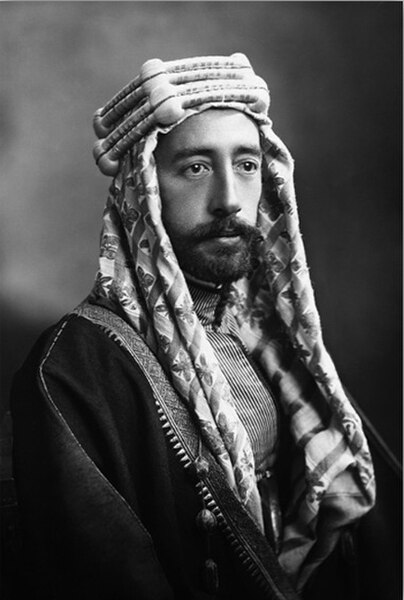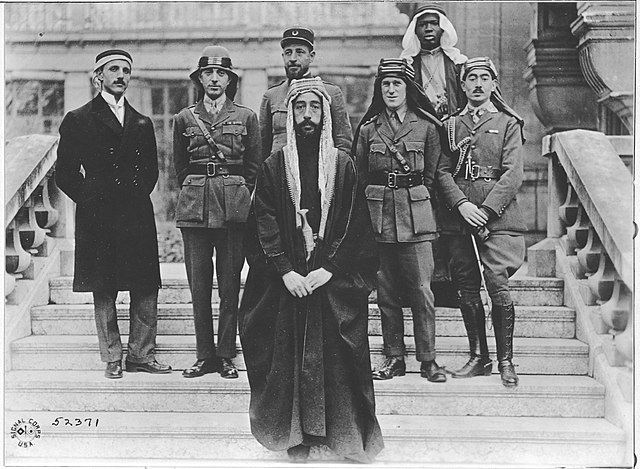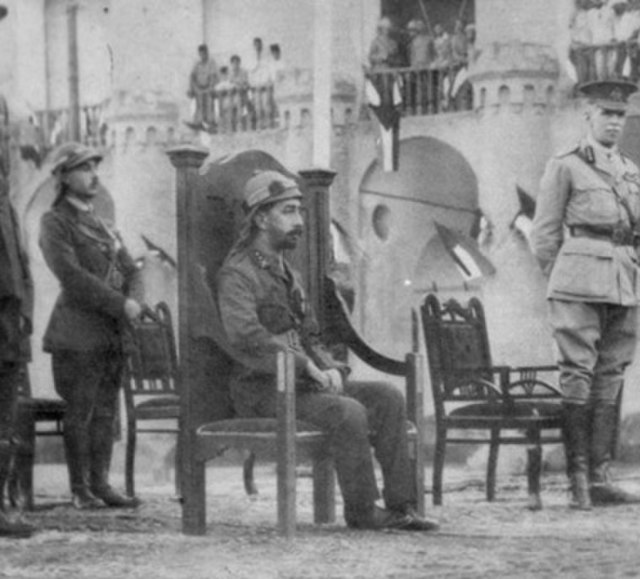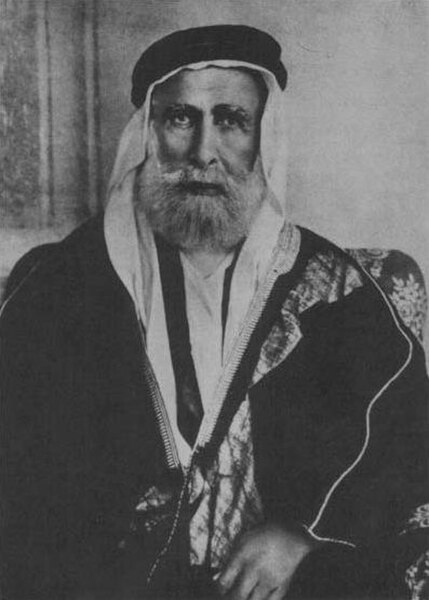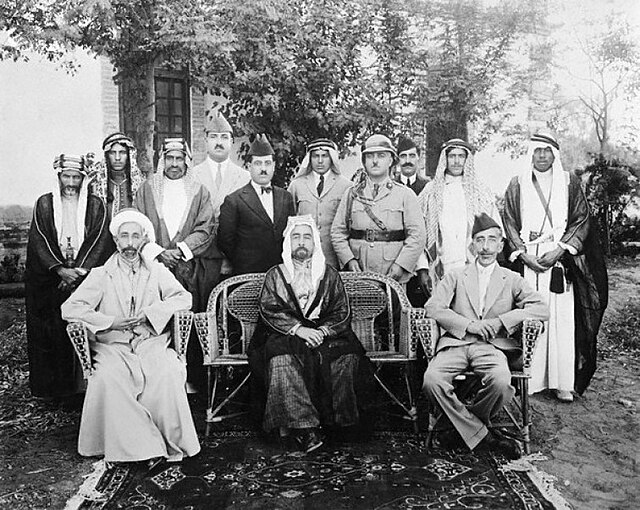Faisal I bin Al-Hussein bin Ali Al-Hashemi was King of Iraq from 23 August 1921 until his death in 1933. A member of the Hashemite family, he was a leader of the Great Arab Revolt during the First World War, and ruled as the unrecognized King of the Arab Kingdom of Syria from March to July 1920 when he was expelled by the French.
Faisal I of Iraq
Emir Faisal's delegation at Versailles, during the Paris Peace Conference of 1919. Left to right: Rustum Haidar, Nuri as-Said, Prince Faisal, Captain Pisani (behind Faisal), T. E. Lawrence, unknown member of his delegation, Captain Tahsin Kadry.
Faisal (right) with Chaim Weizmann in Syria, 1918
Coronation of Faisal as King of Iraq. Faisal seated, to his right are British High commissioner Percy Cox and Lieutenant Kinahan Cornwallis, to his left commander-in-chief of all British troops in the Mesopotamia Commander General Aylmer Haldane.
The Hashemites, also House of Hashim, are the royal family of Jordan, which they have ruled since 1921, and were the royal family of the kingdoms of Hejaz (1916–1925), Syria (1920), and Iraq (1921–1958). The family had ruled the city of Mecca continuously from the 10th century, frequently as vassals of outside powers, and ruled the thrones of the Hejaz, Syria, Iraq, and Jordan following their World War I alliance with the British Empire.
Hussein bin Ali, Sharif of Mecca (1853–1931), the founder of the modern dynasty
King Faisal I of Iraq and King Ali of Hejaz
The family tree of the Hashemite dynasty
The sons of Hussein: Ali, Abdullah and Faisal, in the mid-1920s

